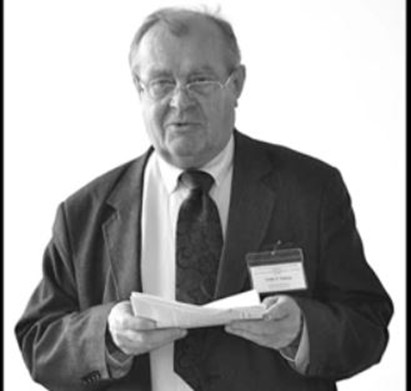
Vilmos Voigt
Obituary
Vilmos Voigt (1940–2025)
This year, Hungarian academic life suffered a significant loss: ethnologist Vilmos Voigt, Professor Emeritus at Eötvös Loránd University in Budapest, passed away at the age of 85.
Born in 1940, he graduated in Budapest with degrees in linguistics, Hungarian literature, and ethnography. After completing his studies, he became a lecturer and then professor at the Department of Folklore at the Faculty of Arts at the University of Budapest, where he served until his retirement. He was head of the department from 1979 to 2005, director of the Institute of Ethnography from 2000 to 2005, head of the doctoral program in Hungarian and Comparative Ethnology from 1996, and later director of the Ethnography Graduate School.
He co-authored and edited the university textbook Magyar folklór [Hungarian Folklore], the first edition of which appeared in 1979 and which remains a reference in the teaching of Hungarian folklore. In addition to ethnology, his research has focused on literature, religious anthropology, semiotics, Finno-Ugric culture, and cultural history. His work is used and recognized far beyond ethnology, in several related disciplines. He has also worked to promote Hungarian ethnology abroad and, conversely, to introduce the contributions of international research to Hungary.
A researcher of great conceptual and methodological rigor, he maintained close relationships with many world-renowned scientists and institutions and regularly invited foreign speakers to Hungary. His knowledge of trends, events, researchers, and institutions in international ethnology was inexhaustible. He had a clear vision of the links between Hungarian and European folklore, the different periods of Hungarian culture—especially folk culture—as well as the interactions between various cultural domains.
Between 1960 and 1990, he wrote several hundred articles for dictionaries, presenting the elements of folk culture and the concepts of ethnology in an interdisciplinary and international framework. More than a thousand of these texts were collected in a volume published in 2014, A folklorisztika alapfogalmai (Fundamental Concepts of Ethnology). He also published a monograph on the aesthetics of folklore, methods of analyzing folk creations, the history of religious experience, and the culture of signs. From 1960 to 2014, he published several volumes and 2473 articles, the bibliography of which was published in two volumes. The collection and publication of his works for the period 2015–2025 are planned soon.
He was a member of prestigious scholarly societies, including the Hungarian Ethnographic Society, the Hungarian Association for Semiotic Research, the Kalevala Society, the Societas Uralo-Altaica, the Finnish Literature Society, and the International Association for Hungarian Studies.
We, the members of Eurethno, SIEF Francophone Working Group, had the pleasure of welcoming him several times to our autumn conferences.
We express our deepest sympathy to our colleague, Professor Kincső VEREBÉLYI, his wife and worthy intellectual companion.
Vilmos Keszeg, University of Cluj-Napoca
(translated from French by Laurent Sébastien Fournier, Côte d’Azur University)




